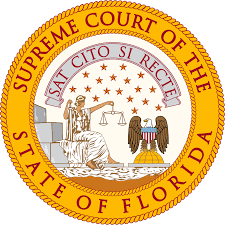| The Florida Supreme Court has issued a decision that says that home care referral sources can be protected legitimate business interests under applicable statutes in Florida. (Elizabeth White v. Mederi Caretenders Visiting Services of Southeast Florida, LLC et al; Americare Home Therapy, Inc. v. Carla Hiles, No. SC16-28, September 14, 2017.) In the first case, White began working at Caretenders as a marketing representative in 2010. Her primary responsibility was to solicit physicians and medical facilities for referrals to Caretenders in two designated counties.
As a condition of employment, Caretenders required White to sign a confidentiality and non-compete agreement. The non-compete agreement prohibited White from working for or soliciting referrals for any competing home care provider in the two counties to which she was assigned for one year after leaving Caretenders for any reason.
White became dissatisfied and resigned from Caretenders in June, 2011. She then accepted a position with Omni Home Health. While working for Omni within the non-compete territory, White marketed to and solicited referrals for Omni from the same referral sources with whom she developed relationships during her employment at Caretenders. After White was employed by Omni, Caretenders experienced a decline in referrals of new patients from the sources assigned to White while she was employed at Caretenders.
In the Hiles case, Hiles’ primary responsibility was to market and solicit referral sources for Americare in a designated county. As a condition of her continued employment with Americare, Hiles executed a non-compete, non-solicitation and non-disclosure agreement. The non-compete agreement prohibited Hiles from working for any competing home care provider within five miles of any referral sources that she solicited at Americare for one year after termination of her employment with Americare. Further, during the one-year non-compete period, Hiles was prohibited from soliciting any referral source that any Americare employee solicited for Americare during the previous year. This non-compete prohibition applied to a territory composed of twenty-three counties where Americare operated.
While still working for and being paid by Americare, Hiles began negotiating employment with Doctor’s Choice, a direct competitor of Americare. While still employed by Americare, Hiles transferred confidential documents from Americare’s secure server to her personal email. Even after Hiles tendered her resignation from Americare, she continued to transfer private and confidential documents, including patient names and treatment information, to her personal email address.
Americare terminated Hiles’ employment. That same afternoon Hiles began working for Doctor’s Choice and continued to transfer Americare’s confidential documents to her personal email address, including Americare’s list of very lucrative referral sources.
While working for Doctor’s Choice, Hiles solicited the same referral sources that she solicited for Americare. In the year prior to Hiles’ departure from Americare, referrals garnered by Hiles generated approximately $712,000 in gross revenue for Americare. During the same month that Hiles left, Americare received no referrals from these same referral sources. The following month, Americare received a significantly decreased volume of referrals from these sources.
Based upon the above, the Supreme Court in Florida determined that referral sources can be protected legitimate business interests under applicable statutes in Florida to support restrictions on competition in contracts with marketers. Although this case is applicable to home care providers in Florida, it will likely be followed by other jurisdictions, especially because it is a decision of the Supreme Court in that state. In addition, although this case involved home health agencies, the same reasoning is likely to be applied to other types of home care providers, including hospice, home medical equipment (HME) and private duty agencies.
This decision gives clear support to home care employers to limit the activities of marketers, if they go to work for competitors. It’s a likely game changer for marketers and their employers!
©2017 Elizabeth E. Hogue, Esq. All rights reserved.
No portion of this material may be reproduced in any form without the advance written permission of the author. |





